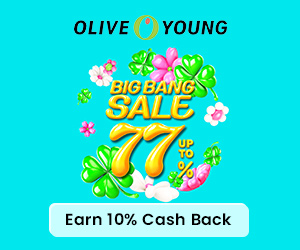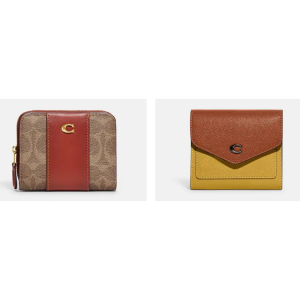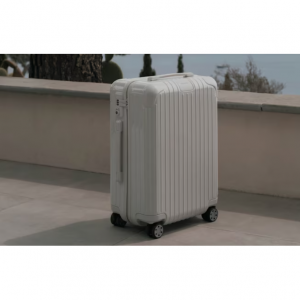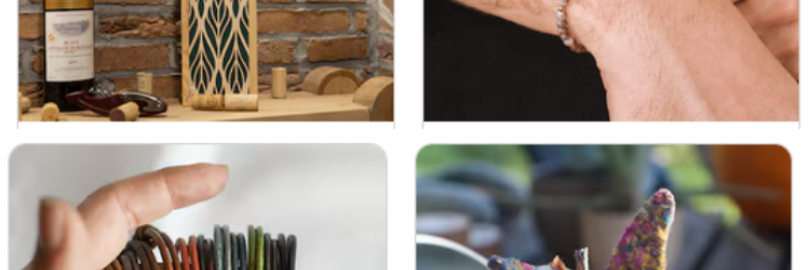
10 Best Sites Like Etsy for Handcrafted Items by Artists
If you want to sell your own arts and crafts, Etsy is an excellent starter platform with over 80 million active buyers. Since its launch in 2005, Etsy has become well-known as the premiere marketplace for buying and selling handmade, custom and vintage goods. You can find unique, creative, &, TRULY handmade items here. However, Etsy is not the only option when it comes to trading handmade products by artists. Many other marketplaces cater to sellers and buyers of handmade goods, antiques, art and other creative items. In this guide, I will run down ten best sites like Etsy for handcrafted items by artists to help you make your pick so you’re never cramped for choice.
What is Etsy?
Etsy started in 2005 and is headquartered in Brooklyn, New York. It’s a leading global online marketplace where you can sell handmade items, vintage treasures, and everything in between. Unlike more generic online marketplaces such as Ebay, Etsy gives creative artists a chance to have a presence on a large selling marketplace that is solely dedicated to handcrafted and vintage items. Etsy has over 2.5 million sellers as of 2019, and allow over 40 million buyers to get handmade gifts.Favoured by independent artists and creatives, the most popular products sold on Etsy include handmade jewelry, art, clothing, home décor, accessories, toys and assorted collectibles.

Pros:
Has been in the industry for over 15 years with lots of buyers;
Has a huge customer base and a lively, supportive community;
The site offers several tools and resources for keeping it up and running;
Cheaper than selling directly to consumers at craft shows.
Cons:
Spike in transaction charges from 5% to 6.5%;
Lots of competition and many shops may offer items similar to your own.
Cost: Setting up a shop is free, and each item listed is $0.20 for four months (or until sold – whichever comes first). For items that sell, an additional fee is required.
Best Sites Like Etsy for Handcrafted Items by Artists
1. Amazon Handmade
Looking for an Etsy alternative? Amazon Handmademight be the perfect fit! It’s a section of the massive Amazon website dedicated solely to handcrafted goods, similar to Etsy. Launched in 2015, this platform of Amazon allows only artisans to show their unique talent upon getting approval. Amazon Handmade does not allow mass-produced products to be on the site. Therefore, everything sold on Amazon Handmade must only be hand-altered or hand-assembled. The products on Amazon Handmade cover a wide variety of categories. It includes handmade cutting boards, pottery, soap, bath bombs, pillowcases, and more. With by far the largest audience in the eCommerce world, Amazon Handmade is the most challenging rival of Etsy.

Pros:
Amazon boasts a massive user base, giving your products much greater exposure compared to Etsy;
Unlike Etsy's listing fees, Amazon Handmade only charges a commission on each sale. This can increase your profits.
Fulfillment by Amazon, Prime members get free two-day shipping;
Insightful analytics and Amazon-sponsored ads.
Cons:
Fewer categories compared to Etsy pose a challenge;
Fewer options for personalizing your online storefront.
Cost: No listing fee, but Amazon charges a 15% referral fee. Plus, There is also a monthly membership fee.
2. Bonanza
Bonanza is a growing marketplace with a diverse range of products, including handmade goods. While it may not specialize solely in handmade goods, it’s known for lower fees than other major marketplaces, charging only a final offer value fee. It’s free to list items on Bonanza. You can import items directly from Etsy and create automated listings on Google Shopping, eBay, and Nextag. Bonanza stands out for its user-friendly interface and integration with Google Shopping, enhancing product visibility. Bonanza has 5 million active monthly visitors, with most of them from the US (75%) and the rest from abroad (25%). However, it’s worth noting that Bonanza has a significantly smaller user base compared to Etsy, which has 95 million monthly visitors. If you're a seller of unique, handcrafted items looking for an alternative to Etsy, Bonanza offers a compelling option.

Pros:
Unlike Etsy, Bonanza lets you list your items for free and listings don’t expire as they do on Etsy;
Bonanza charges a 3.5% selling fee which is much lower than Etsy’s 6.5% commission;
Bonanza makes it easy for sellers to import products from other online marketplaces such as Amazon, eBay, Etsy, and Shopify;
Allowing buyers and sellers to negotiate prices, giving you more flexibility in your sales strategy.
Cons:
Not as large customer base as Etsy;
Although you can create a standalone store, the customization options might be more limited compared to other platforms.
Cost: Bonanza also doesn't charge a listing fee or any monthly store fees except a 3.5% commission from the product. Bonanza also offers commission-based tiers, where it advertises products, such as on Google Shopping, on behalf of sellers.
【Cashback from Extrabux】Up to 6% cashback!
If you like online shopping, don't forget to sign up at Extrabux!(What is Extrabux) , then you can enjoy up to 30+% cashback on your purchase from Extrabux! Sign-Up Bonus: Free to join it & get $20 welcome bonus! Student Benefits:As long as you are a student at school, you can get a free whole year long VIP Card worth $199.Extrabux.com cooperates with many merchants, such as: Walmart (Up to 4% cashback), Sephora(4% -5% cash back), Moosejaw (5% -6% cash back), LOOKFANTASTIC (Up to 10% cash back), Sam's Club (Up to 15% cashback), Norton(Up to 20% cashback), Microsoft (Up to 7% cash back) and so on. You can save on buying daily necessities, fashion, beauty, electronic products, broadband installation, mobile communication, air tickets, hotels and other aspects of life!
3. Goimagine
Goimagine is another marketplace site similar to Etsy. Launched in 2005, it spotlights the heart and soul of handmaking, providing a selective marketplace connecting artisans and buyers who value craftsmanship and purpose. They have many guidelines and requirements to list products on their site. To list on Goimagine, products must meet guidelines that require them to be made by the seller using hand tools or light machinery. As well as supporting independent creators, the platform is committed to social good, donating 100% of profits to children’s charities like Horizons for Homeless Children and Relief Nursery.

Pros:
Handmade and handcrafted products only;
Options to create standalone store;
Socially conscious company that donates transaction fees;
Affordable pricing plans and lower transaction fees than Etsy.
Cons:
Not as well known as some other platform;
Product guidelines are strict;
Only available to US seller.
Cost: Goimagine charges a monthly fee of $2.50 – $10, depending on the number of products you want to list and the platform features you want to use. It also has a 5% transaction fee and a payment processing fee of 2.9% plus $0.30.
4. iCraft
Based in Ontario, Canada, iCraft invites sellers from across the globe to list crafts and original art for sale. Unlike Etsy and many of the Etsy alternatives listed here, iCraft Gifts doesn’t permit the sale of vintage items or craft supplies. This platform emphasizes the uniqueness of handmade products and offers various tools for sellers to showcase their crafts effectively. The sellers can also let their buyers know if they accept customizing on the site.

Pros:
There are no transaction fees;
Focus and commitment to handmade creators means you aren't competing with bulk sellers.
Access to small business marketing tools, community message boards, and arts and crafts events.
Cons:
The platform looks a little dated, which might put off some potential customers.
Cost: The marketplace charges a one-time, non-refundable $25 registration fee and offers subscription-fee packages that range in price from $10 per month to $15 per month. There are no listing, transaction, or commission fees.
5. Folksy
Folksy is the home of British craft - the place to buy handmade gifts and original artwork, sold directly by the artists and designers who have created them. Folksy is like the British Etsy. You might want to consider the platform if you’re UK-based. Among the best categories on Folksy are art and illustration, jewelry, home living, fashion and accessories, craft supplies, cards, and stationery. Like Etsy, Folksy charges fees for listing items for sale on its platform. One of the main things that set Folksy apart from Etsy and other platforms is zero shipping costs. There is also an “Etsy Import service” where you can import your entire product inventory from Etsy to Folksy in one go. As a plus for the particular European sellers, Folksy is less saturated than Etsy — making it easier for those who are brand new to selling crafts online.

Pros:
True handmade, handcrafted marketplace;
Unlike Etsy, Folksy doesn’t charge any commission on shipping fees;
Folksy allows sellers to import product listings from Etsy easily;
The first 3 listings are free, and then it’s 15p per item. Sellers can pay just £5 a month to get unlimited free listings.
Cons:
Folksy restricts sellers outside the UK. However, buyers can be from anywhere in the world;
Folksy doesn't have the same reach as Etsy.
Cost: Folksy has no signup costs, but they do charge fees for listing items, plus a 6% commission.
6. Madeit
Madeit is known as the “Australian version of Etsy”, and is an online marketplace that gets over 80,000 unique monthly visitors and has 120,000+ registered users. There are many unique handmade crafts and one-of-a-kind gifts, categories including fashion, accessories, homeware, bath, and beauty. Sellers can use the platform to sell their creations and craft supplies. They can use Madeit to showcase their amazing, independently created handmade items. However, all the sellers must be based in Australia, and the product must be handmade.

Pros:
Does not charge any commission fee;
Each merchant gets a customized URL for their online store, making it convenient for buyers to locate their favorite sellers;
Sellers can build their brand and communicate with their customers directly.
Cons:
Madeit allows only Australian residents to sell on their platform;
Limits on category listing.
Cost: Madeit has 4 quarterly and 3 annual plans based on the number of listings and categories per item. The lowest plan is $16 AUD per month.
7. Big Cartel
Big Cartel prides itself on being “by artists, for artists.” It promotes its crafters’ creativity and wants them to succeed in a world dominated by mass-produced goods. This online store has more than 83 thousand handmade craft sellers. It includes artisans from all over the globe. Big Cartel aims to help artists to sell their work under a creative, unique online store. You can build your free online store that caters to your every need. Since 2005, over a million creators have sold items such as t-shirts, art, clothing, prints, and jewelry!

Pros:
You can create your own site with your own domain;
Offer 3 affordable pricing plans including a free option;
No listing or transaction fees.
Cons:
Not a marketplace like Etsy;
Monthly price increases based on the number of products you list.
Cost: Big Cartel starts at $9.99/month for twenty-five listings with zero sales commission.
8. Redbubble
Redbubble was founded in 2006 as an eCommerce platform for print-on-demand goods which has almost 2 million unique monthly visitors. Redbubble allows you to upload art, then its manufacturers print it on a variety of products. This means your designs can feature on shirts, phone cases, home décor, and a whole lot more, with minimal involvement from you. While it differs from Etsy's marketplace model where sellers manage their own inventory, Redbubble offers a unique selling proposition for creators who want to focus on design and artwork. Redbubble assigns every product a base price and adds a markup value for sellers. The typical markup value is 20%, but sellers can adjust their prices at any time. If you’re looking for a website where you can sell your designs on a wide range of products, then I’d recommend that you check out Redbubble.

Pros:
There is no fee to set up an account or to upload designs;
You can set the profit margin and retail prices on the base set per product;
Once an artist uploads a design, it stays on Redbubble forever. The designs can be a recurring source of income as long as the listing is active on the platform;
Inventory-free: Redbubble manages printing and shipping on the seller's behalf.
Cons:
No control over inventory.
Because selling on Redbubble is free, there's more competition.
Cost: There is no listing and setup fee. Instead, Redbubble has a base price for each product. This is what it costs the site to print and sell your product, basically. Then you set your own commission per sale – this is your artist margin. By default, this is set to 20%, but you can change it. Then the final retail price the customer pays = the base price + the artist margin.
【Cashback from Extrabux】Up to 8% cashback!
9. Zazzle
Zazzle is a leading marketplace for buying and selling handcraft goods designed from enthusiast designers and creators across the globe. Designers and DIY creatives are the artisans here on this platform looking to sell their items crafted with creativity and imagination. There is even an Ideas section for shoppers to provoke inspiring thoughts, which is perfectly fine. With Zazzle, you literally just design images or logos on already made products and then sell them! There's no need to worry about manufacturing or shipping, which is the beauty of the print-on-demand model. If you want to get your designs out there and on lots of products from t-shirts, to mugs, then you will definitely want to give Zazzle a try.

Pros:
Can add your designs to more than 1,500 blank products;
Zazzle fulfills the orders and handles any customer service requests for you;
Can set your own royalties for your sales from 5% to 99%.
Cons:
Lower profit margins since you have to pay the manufacturer a hefty share.
Cost: the standard Zazzle commission rate is 15% per sale, plus up to a 17% volume bonus.
【Cashback from Extrabux】Up to 5% cashback!
10. Finnalby
Finnalby is the online marketplace where artisans and independent retailers thrive, having launched in September 2023. It has a dedicated section for handmade items, with an approval process to ensure that only genuine handmade items are listed. Plus, Finnalby allows sellers to offer online courses and tutorials on the site, which can help create additional revenue streams for your business. However, its lack of brand awareness may put off potential customers who haven't heard of the platform.

Pros:
Finnalby vets all products listed as “Strictly Handmade” to ensure authenticity;
As well as selling handmade items, you can make money from online courses and tutorials;
The platform offers a simple and affordable fee structure.
Cons:
Finnalby is currently only available in the US;
The platform is still relatively unknown.
Cost: Finnalby charges a flat 5.5% per sale commission, with no listing fees or monthly fees.
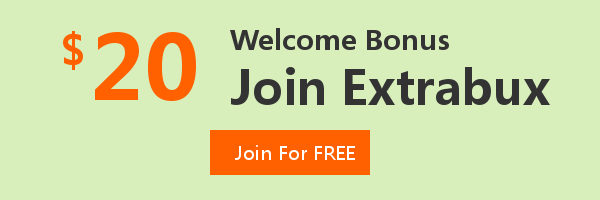
Extrabux is an international cashback shopping site, offering up to 30% cashback from 10,000+ Stores!
24S, SSENSE, MATCHESFASHION.COM, Shopbop, NET-A-PORTER, FARFETCH, YOOX, Eastbay, End Clothing, Macys, Neiman Marcus, Saks Fifth Avenue, Saks OFF 5TH, Bergdorf Goodman, Selfridges, Bloomingdales, Coggles, Harrods, Kohl's, Urban Outfitters, ASOS, Missguided, etc.
Join to get $20 welcome bonus now! (How does Welcome Bonus work?)
Recommendation
-

Is Turkish Airlines Good for International Flights?
-
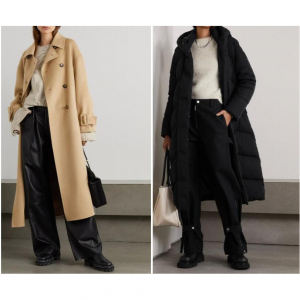
10 Best & Stylish Winter Coats for Women on NET-A-PORTER in 2025
-
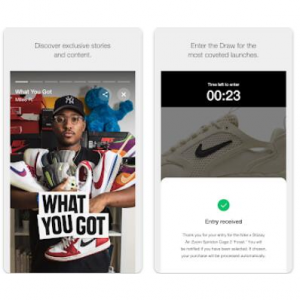
Top & Best 12 Sneaker Apps/Websites for Raffles, Releases & Restocks in 2025
-
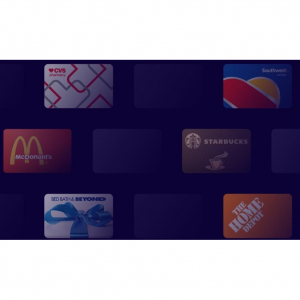
7 Best Gift Card Exchange Sites - Buy, Sell and Trade Discount Gift Card Safely and Instanly!
-

Top 9 Professional Skincare Brands for Licensed Estheticians 2025

